What is Jasmine Essential Oils for
Jasmine essential oil is a popular and versatile essential oil that offers a wide range of benefits for both the body and mind. From aromatherapy to skincare, haircare, and emotional support, jasmine essential oil has been used for centuries for its therapeutic properties.
In this article, we will explore how jasmine essential oil is made, its various uses, benefits, potential side effects, and how to use it safely. Discover the wonders of jasmine essential oil and incorporate it into your daily wellness routine.
Key Takeaways:
What Is Jasmine Essential Oil?
Jasmine essential oil is a highly fragrant oil derived from the jasmine plant, known for its aromatic properties and therapeutic benefits in aromatherapy practices.
This precious oil is extracted through a meticulous process that involves collecting jasmine flowers at night, when their scent is most potent, and then delicately pressing or steam-distilling them to capture the essence.
With a rich history dating back centuries, jasmine essential oil has been revered in various cultures for its calming and antidepressant qualities, often used in spiritual ceremonies, perfumes, and traditional medicine.
How Is Jasmine Essential Oil Made?
The process of making jasmine essential oil involves the extraction of aromatic compounds from the delicate petals of the jasmine plant, predominantly cultivated in regions like Iran, where the climate is ideal for its growth.
One of the primary extraction methods used to obtain jasmine essential oil is the process of steam distillation. During this method, freshly picked jasmine petals are placed in a distillation apparatus where steam is passed through the petals, extracting their essence.
Jasmine plants are also cultivated in countries like India and Egypt, where the rich soils and warm climates enhance the quality of the extracted oil.
What Are The Uses Of Jasmine Essential Oil?
Jasmine essential oil offers a diverse range of uses that encompass aromatherapy, skincare, PMS relief, and support during menopause, providing a holistic approach to overall well-being.
Known for its soothing properties, jasmine essential oil can be diffused to promote relaxation and reduce stress levels. When added to skincare routines, it aids in balancing oily skin, diminishing scars, and improving overall skin elasticity. Its hormonal balancing effects make it a popular choice for alleviating symptoms of PMS and menopause. Whether used in massages, baths, or as a perfume, jasmine essential oil is a versatile solution for enhancing both mental and physical wellness.
Aromatherapy
Aromatherapy utilizing jasmine essential oil can promote relaxation, alleviate anxiety, and uplift mood, making it a popular choice for those seeking natural mental health remedies.
Jasmine essential oil is renowned for its soothing properties, which can help calm the mind and body after a long day. The sweet, floral aroma of jasmine has been shown to have a profound impact on reducing stress levels and easing feelings of tension.
Many people use jasmine essential oil in aromatherapy to create a tranquil environment and improve their overall well-being. Its calming effects can also be beneficial for individuals dealing with symptoms of depression or anxiety, providing a natural and gentle way to uplift the spirit.
Skincare
Jasmine essential oil is a potent ingredient in skincare due to its ability to nourish the skin, reduce wrinkles, and promote a youthful complexion, making it a sought-after choice in natural skincare routines.
Studies have shown that jasmine essential oil contains antioxidants that help in fighting free radicals, reducing signs of aging, and boosting skin elasticity. Its moisturizing properties make it effective in keeping the skin hydrated, improving overall skin texture, and preventing dryness. Regular use of jasmine essential oil can also aid in skin rejuvenation, enhancing skin tone and complexion. Not only does it provide physical benefits, but the aromatic properties of jasmine oil can also have calming and relaxing effects on the mind and body, providing a holistic skincare experience.
Haircare
In haircare, jasmine essential oil can nourish the scalp, strengthen hair follicles, and add a natural fragrance, enhancing the overall health and appearance of hair.
Jasmine essential oil is well-known for its ability to promote hair growth by increasing blood circulation to the scalp, encouraging healthier and stronger hair. The soothing aroma of jasmine oil can provide a relaxing experience during haircare routines, reducing stress levels and promoting a sense of well-being. Due to its moisturizing properties, jasmine essential oil can also help combat dryness and itchiness on the scalp, leaving the hair feeling softer and more manageable. Incorporating jasmine essential oil into your haircare regimen can lead to improved scalp health, silky smooth hair, and a delightful fragrance that lingers throughout the day.
Mood and Emotional Support
Jasmine essential oil serves as a powerful mood enhancer, acting as a natural sedative to promote relaxation and combat symptoms of depression and anxiety, offering holistic emotional support.
Its rich, floral aroma has been cherished for centuries for its ability to soothe the mind and uplift the spirit, evoking feelings of positivity and calmness. The therapeutic properties of jasmine essential oil extend beyond just scent; when used in aromatherapy, it can help lower cortisol levels, the stress hormone, and induce a sense of peace and tranquility.
What Are The Benefits Of Jasmine Essential Oil?
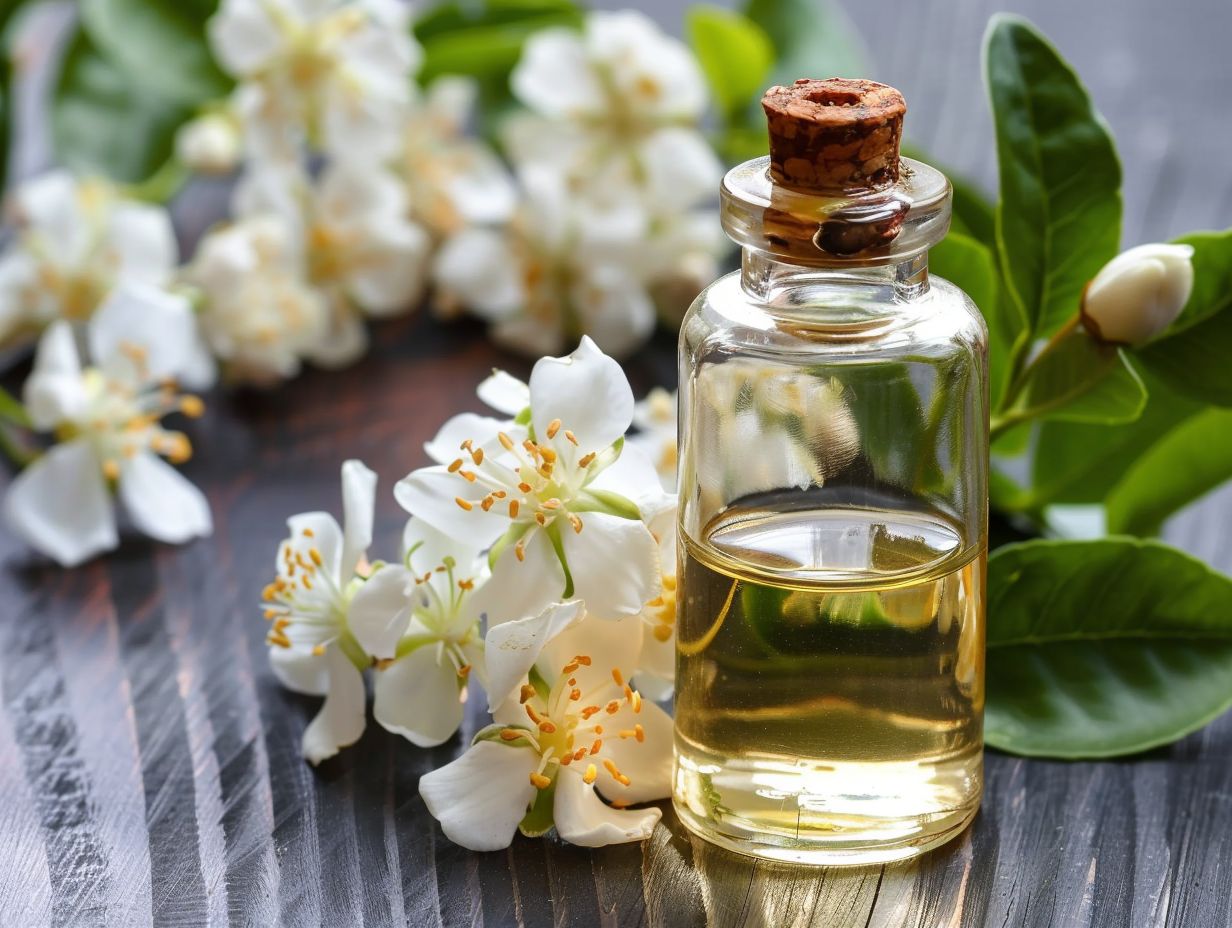
Its aromatic properties have a calming effect on the mind, reducing stress and anxiety levels. When used in skincare, jasmine oil helps in promoting radiant and healthy skin by balancing oil production and moisturizing the skin.
For women experiencing PMS symptoms, jasmine essential oil can aid in alleviating mood swings, headaches, and cramps, providing a sense of comfort and relief during challenging times.
During menopause, this oil can help in managing hormonal imbalances, hot flashes, and night sweats, supporting women through this transitional phase of life.
Relieves Stress and Anxiety
Jasmine essential oil is renowned for its ability to relieve stress, reduce anxiety levels, induce relaxation, and act as a natural sedative, promoting emotional well-being and mental calmness.
Derived from the delicate white flowers of the jasmine plant, this fragrant oil has been used for centuries in aromatherapy and traditional medicine for its powerful therapeutic properties. The sweet, floral aroma of jasmine oil is known to have a soothing effect on the mind, easing nervous tension and creating a sense of tranquility.
Studies have shown that inhaling jasmine essential oil can reduce the levels of stress hormones in the body, helping to alleviate feelings of anxiety and promote mental clarity. Its sedative effects make it a popular choice for those struggling with insomnia or restless nights.
Jasmine oil is believed to uplift the spirits and enhance mood, making it an excellent choice for moments when you need a little emotional boost. Whether used in a diffuser, added to a warm bath, or diluted in a carrier oil for massage, jasmine essential oil can be a valuable addition to your self-care routine.
Promotes Relaxation and Sleep
Jasmine essential oil promotes relaxation, improves sleep quality, and aids in tackling insomnia, offering a natural remedy for enhancing sleep health and achieving restful nights.
One of the key reasons why jasmine essential oil is highly regarded for its sleep-enhancing benefits is its calming effects. This fragrant oil has the ability to relax the mind and body, creating a soothing environment that prepares the individual for a restful night’s sleep. With its gentle yet potent scent, jasmine essential oil acts as a natural sleep inducer, helping individuals unwind after a long day and drift off into a deep and rejuvenating slumber.
Plus its calming properties, jasmine essential oil is also known for its efficacy in combating insomnia. By alleviating stress and anxiety, this oil can help regulate sleep patterns and promote a sense of tranquility that is conducive to a night of undisturbed sleep. Whether used in aromatherapy, massage oils, or diffusers, jasmine essential oil can be a powerful ally in the quest for better sleep and improved overall well-being.
Improves Skin Health
Jasmine essential oil improves skin health by hydrating, reducing wrinkles, and promoting a youthful complexion, making it a valuable addition to skincare routines for nourished and rejuvenated skin.
Jasmine essential oil’s moisturizing effects help to lock in hydration and prevent dryness, leaving the skin soft and supple. Its anti-aging properties work to diminish fine lines and wrinkles, contributing to a smoother appearance. The skin rejuvenation capabilities of jasmine essential oil aid in revitalizing dull and tired skin, giving it a radiant glow. This versatile oil is gentle yet effective, suitable for all skin types, promoting overall skin health and providing a natural and aromatic remedy for various skin concerns.
Reduces Inflammation and Pain
Jasmine essential oil exhibits anti-inflammatory and pain-relieving properties, acting as a natural antiseptic to soothe skin irritations, reduce inflammation, and alleviate discomfort effectively.
The antiseptic qualities of jasmine essential oil make it a popular choice for treating various skin issues, such as acne, eczema, and minor burns. Its soothing effects on skin irritations provide relief from itching and redness, promoting faster healing. The oil’s ability to manage inflammation and pain makes it a valuable remedy for muscle aches, joint pain, and headaches. Whether used in aromatherapy or mixed with a carrier oil for topical application, jasmine essential oil offers a natural and gentle solution for improving overall well-being.
Are There Any Side Effects Of Using Jasmine Essential Oil?
While jasmine essential oil offers numerous benefits, it is crucial to be aware of potential side effects such as skin irritation and allergic reactions that may occur, particularly in sensitive individuals.
Jasmine essential oil can increase the skin’s sensitivity to sunlight, making it more prone to sunburns and other harmful effects caused by UV rays. It is important to always dilute jasmine oil with a carrier oil before applying it to the skin to reduce the risk of irritation.
Perform a patch test before using jasmine oil topically to check for any adverse reactions. If any irritation, redness, or itching occurs, discontinue use immediately and seek medical advice. It is advisable to consult a healthcare professional or a qualified aromatherapist before incorporating jasmine oil into your daily routine, especially if you have sensitive skin or existing allergies.
Skin Irritation
Skin irritation is a possible side effect of jasmine essential oil, especially when used in high concentrations or by individuals with sensitive skin, emphasizing the importance of proper dilution and patch testing.
It is vital to note that although jasmine essential oil offers a range of benefits, it is potent and should be handled with caution. Proper dilution is key to reducing the risk of skin irritation. Experts recommend that it should be diluted in a carrier oil such as coconut or jojoba oil at a ratio of 1-2% for safe usage. This ensures that the oil is gentler on the skin while still retaining its therapeutic properties.
Allergic Reactions
Allergic reactions to jasmine essential oil may occur in individuals with sensitivities to specific compounds, underlining the importance of performing patch tests and consulting with healthcare professionals before use.
When jasmine essential oil comes into contact with the skin, it can lead to a range of reactions such as redness, itching, or swelling, especially in those with hypersensitive skin. These reactions are more likely to happen in people with a history of allergies or skin conditions. It is crucial to conduct a patch test by applying a small amount of diluted oil to a small area of skin and waiting for 24-48 hours for any signs of irritation or adverse reactions.
In cases of any discomfort or reaction, seeking guidance from a medical professional is paramount. A healthcare expert can provide personalized advice and recommend suitable alternatives or dilutions to minimize the risk of adverse effects. Individuals with known sensitivities to floral scents or specific fragrance components should exercise extra caution when using jasmine essential oil, as it may trigger allergic responses even in small quantities. By taking these precautions and being attentive to potential reactions, one can enjoy the benefits of jasmine oil with confidence and safety.
Photosensitivity
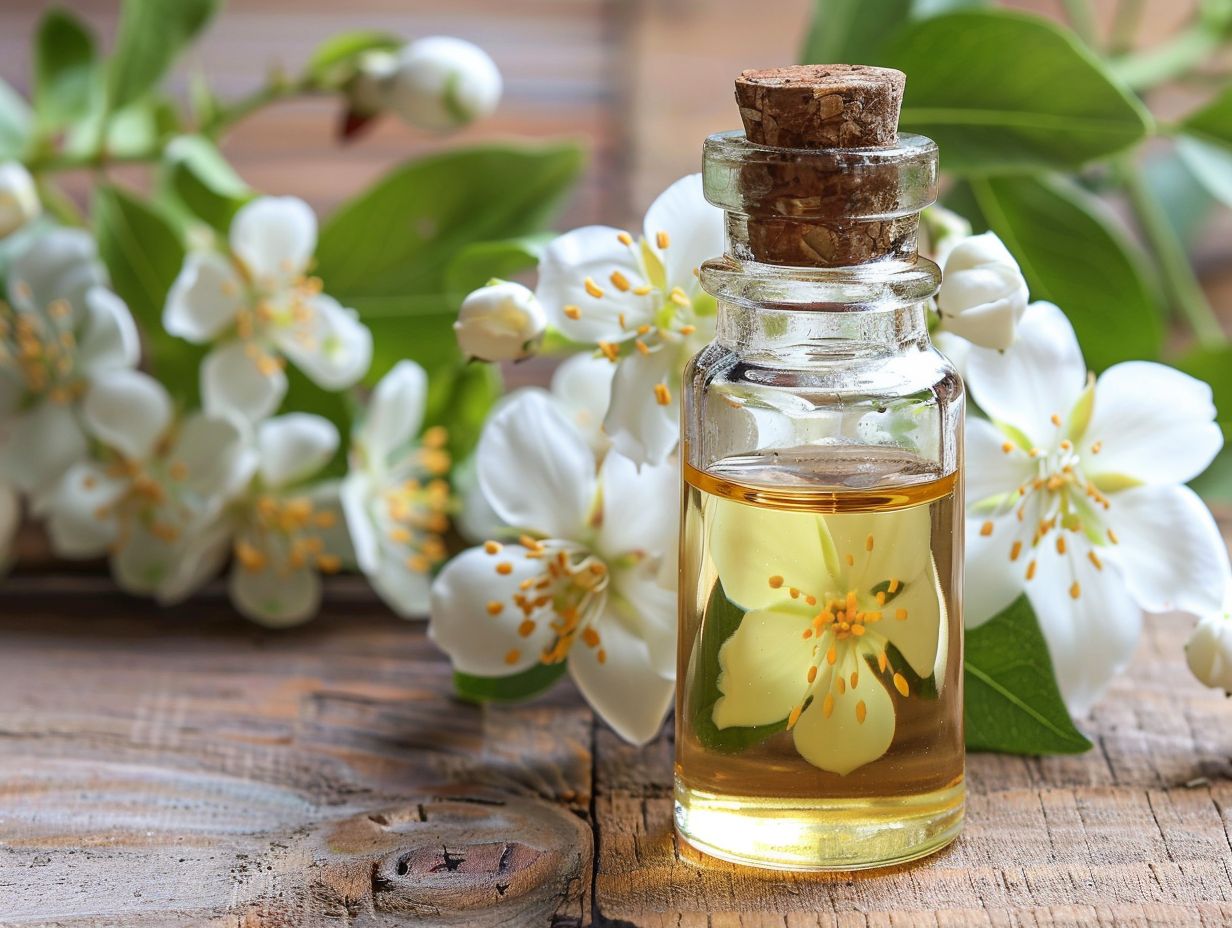
Photosensitivity triggered by jasmine essential oil occurs due to its natural compounds that can react with sunlight, leading to skin reactions.
Protective measures are crucial for individuals sensitive to this oil, including applying sunscreen with a high SPF, wearing protective clothing, and avoiding prolonged sun exposure.
It’s advisable to dilute jasmine essential oil before topical application to minimize the risk of adverse skin reactions.
How To Use Jasmine Essential Oil Safely?
To ensure safe use of jasmine essential oil, it is essential to dilute it with a carrier oil, conduct patch tests prior to application, and seek advice from healthcare providers, especially during pregnancy or nursing.
When diluting jasmine essential oil, the recommended ratio is typically 1-2% by adding a few drops of the oil to a tablespoon of carrier oil like coconut or almond oil.
Conduct a patch test by applying a small amount of diluted jasmine oil to the inner forearm and waiting 24 hours for any signs of irritation.
For pregnant or nursing individuals, it’s advisable to consult a healthcare professional to ensure safety and suitability of using jasmine essential oil during this sensitive period.”
Dilute with Carrier Oil
Diluting jasmine essential oil with a suitable carrier oil like coconut or jojoba oil is crucial to prevent skin irritation and enhance the oil’s absorption, ensuring safe and effective application.
In terms of dilution ratios, a common guideline is to mix 1-2 drops of jasmine essential oil with every teaspoon of carrier oil. This can vary depending on individual skin sensitivity, so it’s recommended to perform a patch test before use.
Popular carrier oils like sweet almond oil and grapeseed oil are also excellent choices to blend with jasmine essential oil. These carrier oils offer nourishing properties and help in maximizing the benefits of jasmine oil.
Remember, proper dilution not only reduces the risk of adverse reactions but also helps in spreading the aromatic goodness of jasmine essential oil evenly on the skin, providing a delightful sensory experience.
Patch Test Before Use
Performing a patch test before using jasmine essential oil helps identify potential allergic reactions or sensitivities, ensuring that the oil is well-tolerated by the individual before broader application.
When conducting a patch test with jasmine essential oil, it is essential to choose a small area of skin, preferably on the inner arm, and apply a diluted solution of the oil. This patch should be left uncovered for around 24 hours. During this time, observe the skin for any signs of redness, itching, swelling, or irritation. Any such reactions indicate sensitivity to the oil, warranting caution in using it further.
Patch testing is particularly crucial for individuals with sensitive skin or a history of allergies, as jasmine essential oil may trigger adverse reactions in susceptible individuals.
Consult with a Doctor if Pregnant or Nursing
For individuals during pregnancy or nursing, it is advisable to consult healthcare providers before using jasmine essential oil to ensure safety for both the mother and the baby.
While jasmine essential oil is known for its soothing aroma and potential benefits, it’s crucial to approach its usage cautiously when expecting or breastfeeding.
Medical supervision is paramount as some essential oils can interact with medications or impact hormone levels, potentially affecting the developing fetus.
- To minimize risks, pregnant or nursing individuals should avoid internal use of jasmine essential oil and opt for external application through safe dilution in carrier oils.
- Patch testing on a small area of skin is recommended to check for any adverse reactions before widespread use.
What Are Some Precautions When Using Jasmine Essential Oil?
While jasmine essential oil offers numerous benefits, it is essential to observe precautions such as avoiding ingestion, proper storage away from children and pets, and ensuring the oil is kept in a cool, dark place for longevity and potency.
Regarding ingestion risks, it is crucial to remember that essential oils are highly concentrated and should never be ingested without the guidance of a qualified healthcare provider. Ingestion can lead to adverse effects such as stomach irritation or even poisoning.
In terms of storage, it is recommended to store jasmine essential oil in a tightly sealed container away from direct sunlight and heat to prevent oxidation and maintain its therapeutic properties. This will also help in ensuring the oil’s aroma stays intact.
To protect children and pets from accidental exposure, consider storing the oil in a high, out-of-reach cabinet or using childproof locks to secure the storage location. This extra precaution is necessary, especially as strong scents can be enticing to curious little ones.
Avoid Ingestion
Ingesting jasmine essential oil can be harmful and is not recommended due to its concentrated nature, making it vital to avoid oral consumption and focus on external applications or inhalation methods for aromatherapy benefits.
When jasmine essential oil is ingested, there is a risk of adverse effects such as nausea, vomiting, and digestive issues due to its potency.
It’s important to note that jasmine essential oil should never be taken internally without proper consultation with a healthcare professional, as it can be toxic in high doses.
Instead, opt for using jasmine essential oil in diluted forms for massage, bath, or diffuser purposes to enjoy its calming and uplifting properties safely.
Keep Away From Children and Pets
To prevent accidental exposure and ingestion, jasmine essential oil should be stored out of reach of children and pets, ensuring secure storage and minimizing the risk of unintended contact.
Jasmine essential oil is a highly potent substance that can cause harm if ingested or improperly handled. It is crucial to keep it in a cool, dark place, away from direct sunlight and heat sources, to maintain its quality and efficacy.
- When storing jasmine essential oil, make sure the bottle is tightly sealed to prevent leaks or spills. Always label the container clearly to avoid confusion with other substances and enhance safety awareness.
As an extra precaution, consider using childproof caps or locks on storage containers to further reduce the chances of accidental exposure. Educate family members and visitors about the potential dangers of jasmine essential oil and how to handle it safely.
Store in a Cool, Dark Place
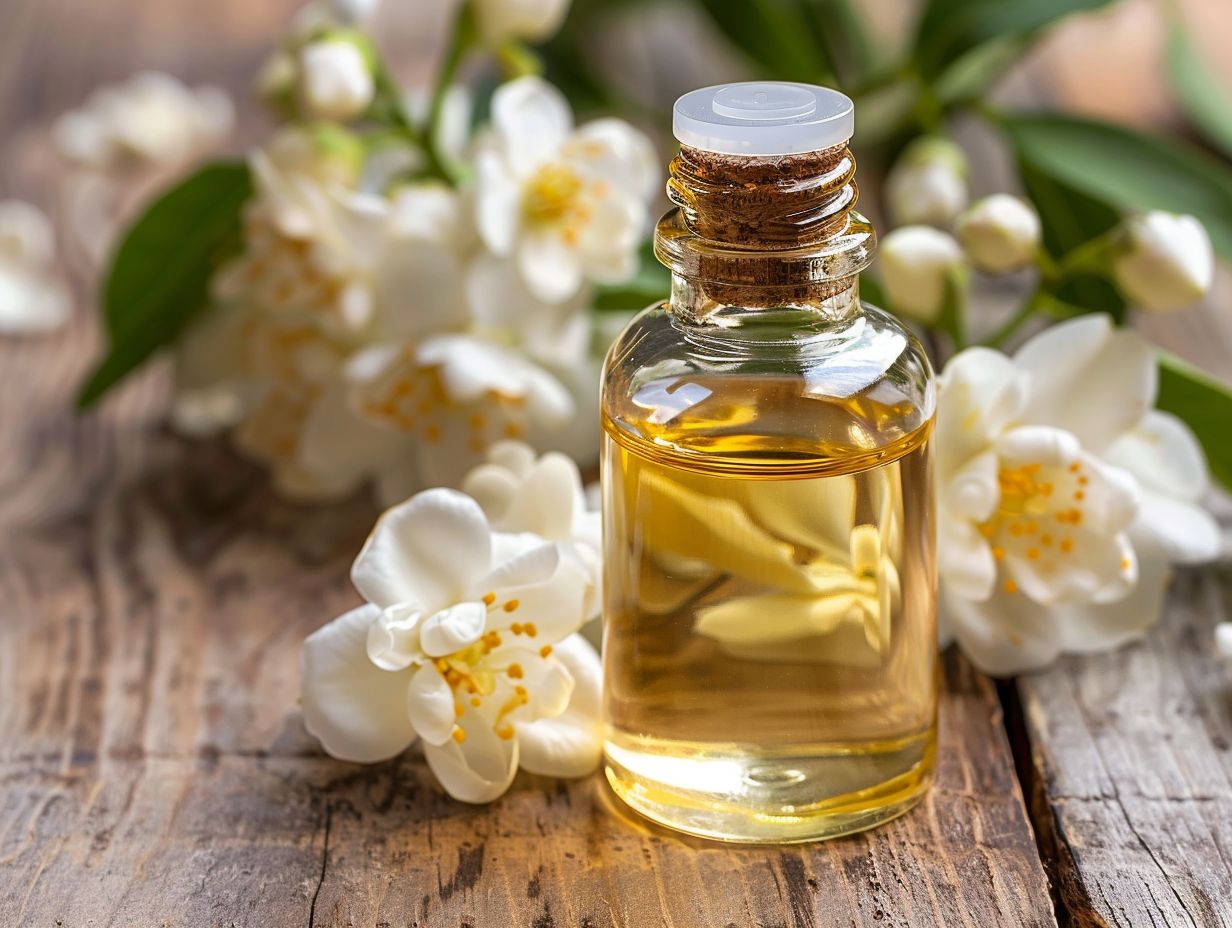
In terms of the proper storage of jasmine essential oil, placing it in a cool and dark environment is crucial. Exposure to heat and light can lead to oxidation and evaporation of the oil’s beneficial compounds, diminishing its therapeutic properties. By keeping the oil away from direct sunlight and extreme temperatures, you can extend its shelf life and potency.
Using suitable containers such as dark glass bottles can further protect the oil from external factors. Glass containers help prevent interaction with plastic or metal, which can alter the composition of the oil. Remember to tightly seal the bottle after each use to minimize air exposure and oxidation.
It’s essential to consider factors that can impact the oil’s longevity and efficacy. Temperature fluctuations, humidity levels, and air exposure can all affect the quality of jasmine essential oil. By storing it correctly and following these guidelines, you can ensure that your oil remains potent, fragrant, and beneficial for a longer period.
Frequently Asked Questions
What is Jasmine Essential Oil for?
Jasmine essential oil is a highly concentrated aromatic oil extracted from the jasmine plant. It is commonly used in aromatherapy for its calming and uplifting properties.
What are the benefits of using Jasmine Essential Oil?
Jasmine essential oil has a variety of benefits, including reducing stress and anxiety, promoting relaxation and sleep, improving mood, and enhancing skin and hair health.
How do you use Jasmine Essential Oil?
Jasmine essential oil can be used in a variety of ways, including inhalation through a diffuser, topical application through massage or skincare products, and adding a few drops to a warm bath.
Is Jasmine Essential Oil safe to use?
Jasmine essential oil is generally considered safe when used properly. However, it is important to dilute the oil before applying it to the skin and to avoid using it on sensitive areas. It is also not recommended for use during pregnancy.
What does Jasmine Essential Oil smell like?
Jasmine essential oil has a sweet, floral and exotic aroma that is often described as warm, sensual, and romantic. Its rich and luxurious scent is widely used in perfumes and beauty products.
Can Jasmine Essential Oil be used for medicinal purposes?
While jasmine essential oil has been used for medicinal purposes in traditional medicine, there is limited scientific evidence to support its effectiveness. It is always best to consult with a healthcare professional before using essential oils for any medicinal purposes.

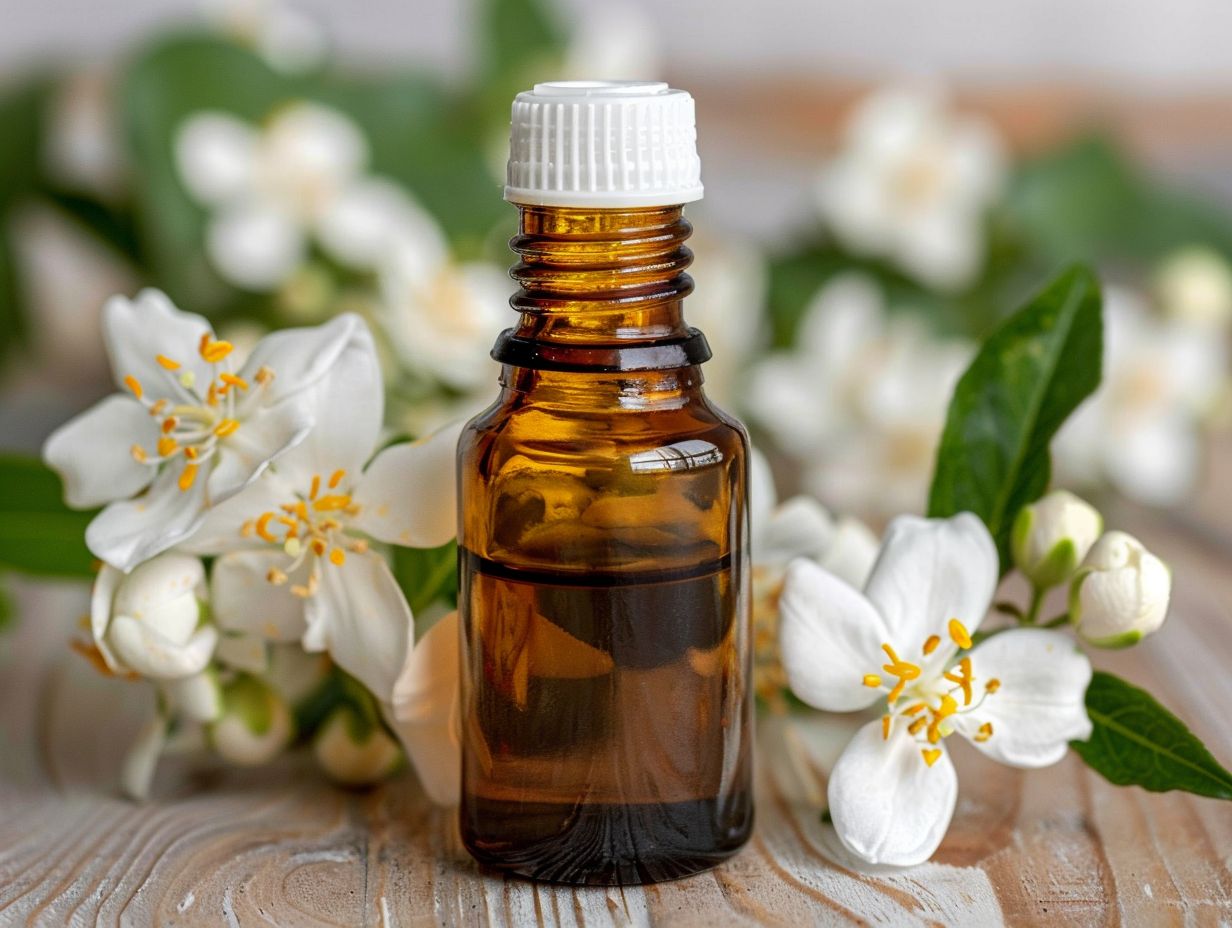
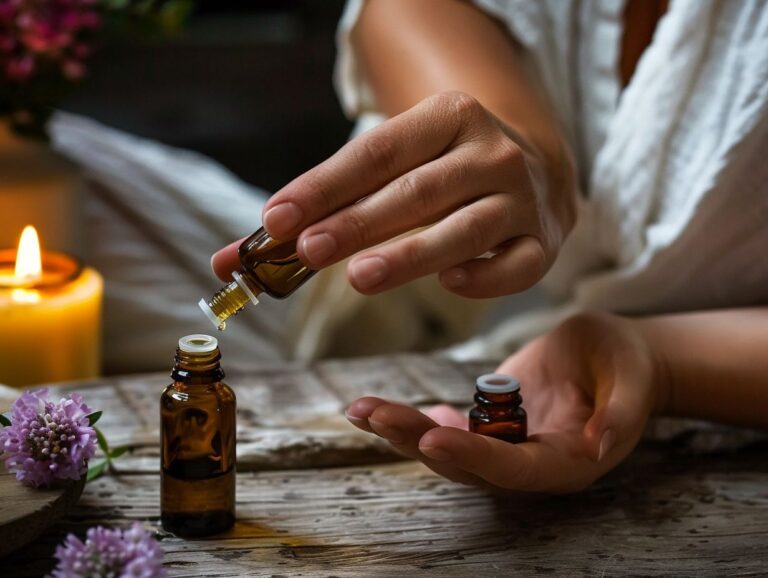

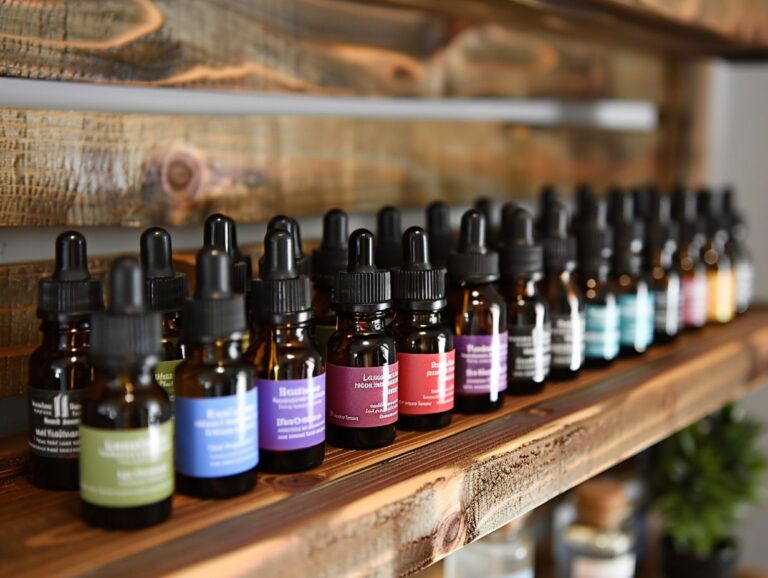
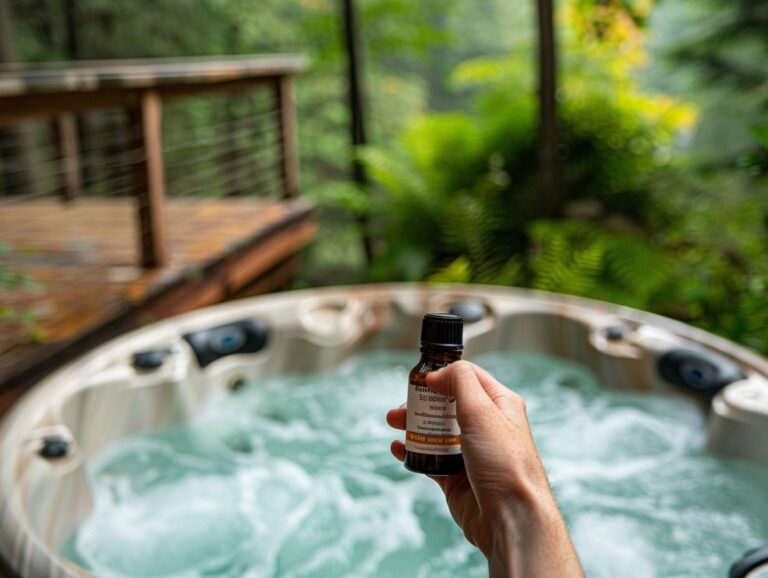
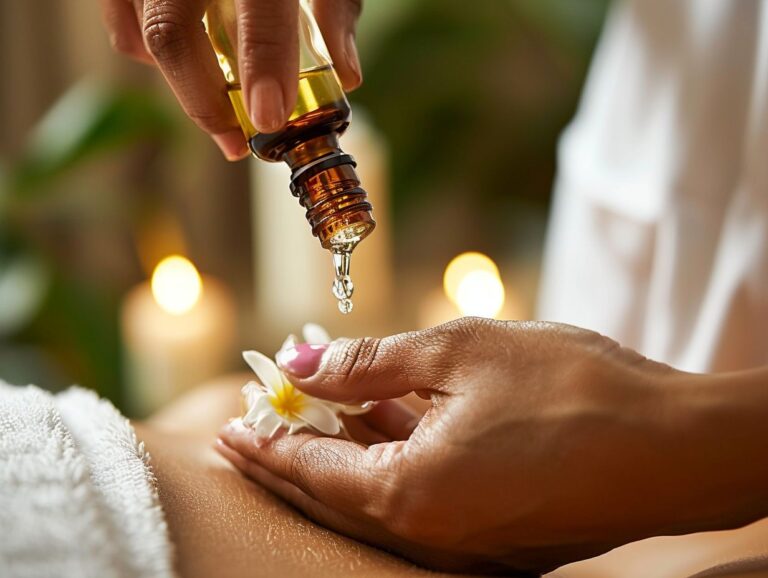
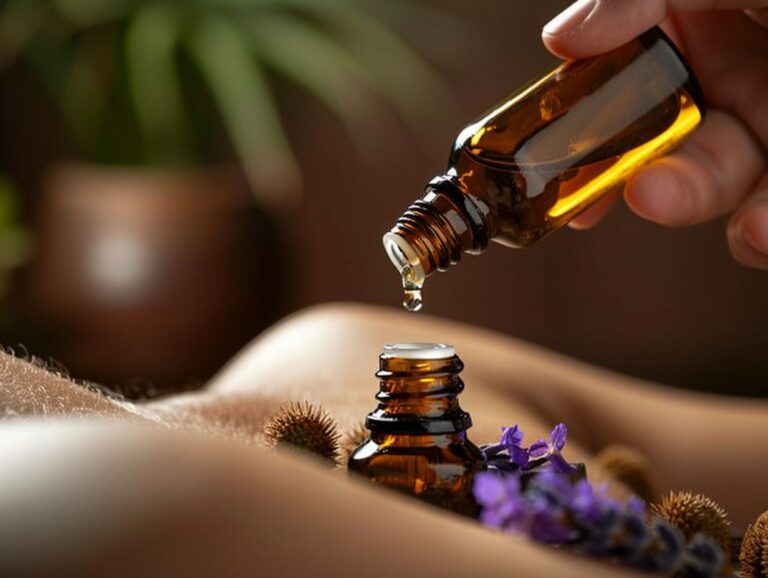
One Comment